In a tiny hamlet at rustic Dasanapura in Chamarajanagar district, Karnataka, a group of women deftly shape fine slivers of bamboo to make beautiful bamboo lanterns in different shapes to hold fairy lights that promise to bring the twinkle of stars into your homes for Christmas. The fairy light holders in green, red, orange and natural colours come in the shape of balls and tiny cylinders.
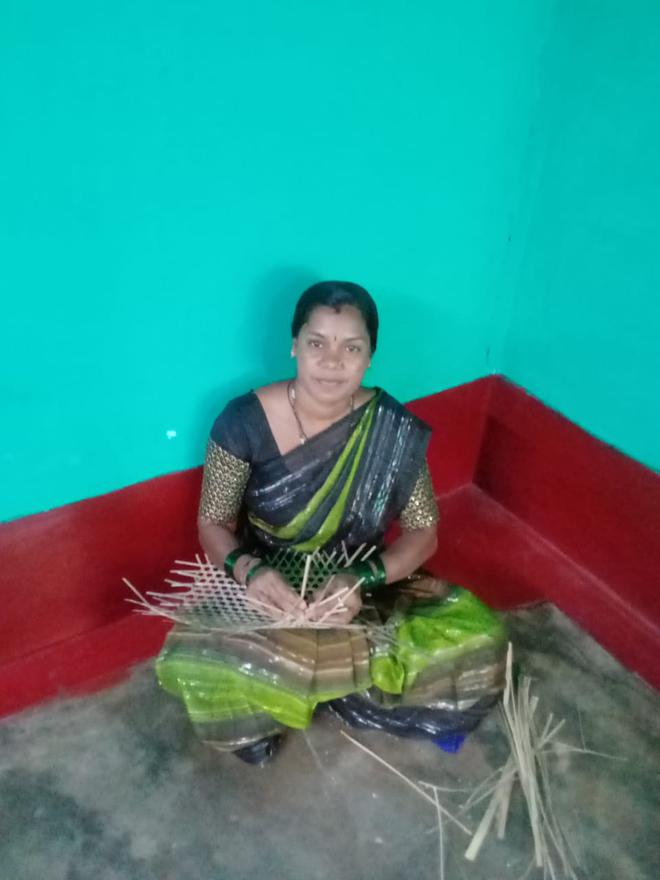
Jayamma, 35, one of the women from the Chelavadi community, has been hard at work, making the lanterns for the fairy lights that are much in demand during December and New Year’s Eve. A homemaker, she is part of the Karnataka-based Mahila Swasahaya Mutual Benefit Trust, an initiative to empower women from marginalised communities by upskilling them in various crafts to make products for contemporary buyers and markets.
Upskilling craft skills
Initially, Jayamma wondered how she would work on the bamboo as she was not used to it. Adept at making mats, she was trained for three months to upskill and broadbase her talent to make products such as baskets, lampshades, storage boxes, trays, lanterns and so on from bamboo. She says, “The trainers taught us to make different products. We were told that we would get orders from the market for the different products that we have to work on. The market is very important because we have to see whatever products we are producing are getting sold.”
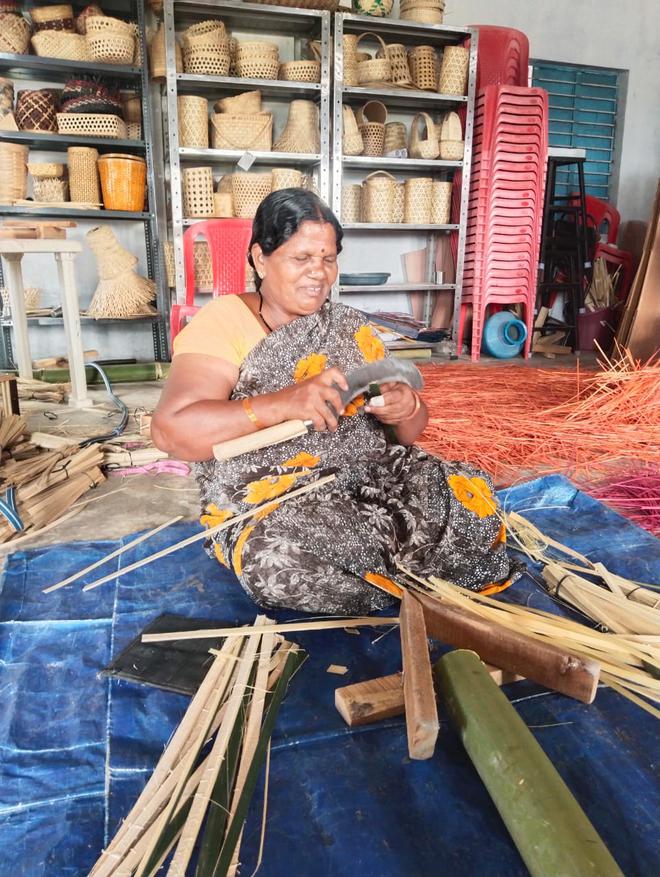
She is one of the 200-plus women working under the umbrella of Mahila Swasahaya Mutual Benefit Trust, a producer-owned collective enterprise comprising Dalit and Adivasi women from communities such as Soligas, Betta Kurubas and Nayakar in Chamarajanagar district of Karnataka. The collectives are owned, run and led by the women stakeholders themselves.
Illuminating lives
Three metres of the fairy lights costs about ₹549 while the 10-metre string of fairy lights costs ₹1,399. Categorised as full moon fairy lights, vine fairy lights, frill fairy lights, and jingle bell fairy lights, the strings comes in red, green, orange and natural. There might be slight variations in price depending on the colour of the strings. Contact 9035427706 or 8217346410 to place your order. The lights are shipped all across India. Order online at https://sites.google.com/industree.org.in/bfl
Prior to the initiative, many of the women worked as daily wage labourers in fields and forests in the neighbourhood.
Remya Devan, director of Industree Foundation, which works at the intersection of equity, climate, and gender in Orissa, Karnataka and Tamil Nadu, is building economic opportunities for women in nature-based traceable supply chains. She explains: “The annual income of the women was less than ₹10,000. We mobilised these women, many living in remote areas, and brought them together to form Mutual Benefit Trust (MBT). They are the owners and leaders of the Mahila Swasahaya MBT. Some amount of handholding was necessary for a year or two to help the women understand the market dynamics and to learn soft skills.”
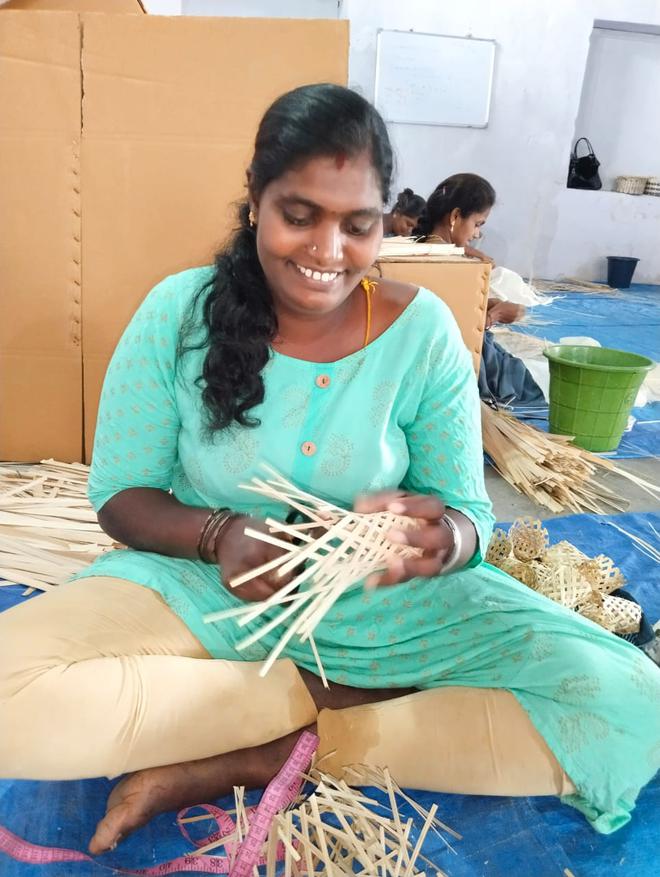
Their understanding of the market is clear when 24-year-old Shanthi S, another manufacturer of bamboo products, talks about her experience as a member of MBT.
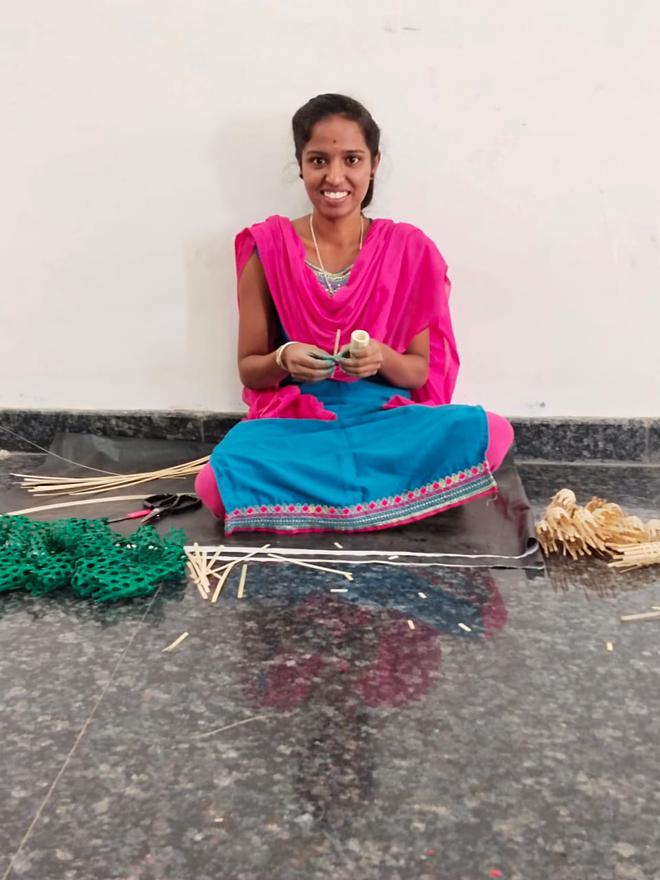
She explains that though they were making bamboo mats, fruit baskets, and many other items during their training, “now we are making products which have demand in the market. During festival season, there is demand for fairy lights, pooja bowls/baskets, chocolate jars etc. We are getting more orders for these products and making those.”
Sustainable bamboo products
At present, the focus is on sustainable products made with bamboo. Since India is one of the largest producers of bamboo, it made sense to tap its potential as an eco-friendly alternative to wood. Most of the bamboo in India is located in forests, making it difficult for the women to access it.
Soya Thomas, senior consultant of Industree, points out that India relies on importing volumes of commercially suitable bamboo from China and Vietnam to meet internal requirements. She says, “The Mahila Swasahaya MBT, with its work in the bamboo value chain, has taken a small but significant stride towards ensuring that sustainable products are available for conscious consumers.”
These products give hope to the women making them. Jayamma wants the marketing team to get orders for different kinds of products. She points out that when there is a demand for new products, they are trained to make those. “As we work as a group, it helps us to learn by seeing each other. We can earn if we get regular orders. Every month, we get a regular income. I am proud that I am earning, helping my husband and taking care of the children,” says Jayamma.
The women are engaged in the entire process involved in bamboo product-making, right from receiving the raw material and processing until the final product is ready for sale. Bamboo is sourced from private plantations in Kodagu, Karnataka.
Remya adds, “We try to empower the women by building a creative manufacturing ecosystem for micro-entrepreneurs to help them lift themselves from poverty.”
Industree’s work with bamboo enterprises started in 2020 in a quaint tribal village called Ponnachi, in Male Mahadeshwara hills, located on the Karnataka and Tamil Nadu border in Chamarajanagar district.
A design and marketing team of Industree studies the market to understand what will sell. Then the design team comes up with products that are compatible with the skill levels of the women.
“The festival lights is one such product that caters to a niche market. This time, they are making it in large volumes for conscious customers,” says Remya.
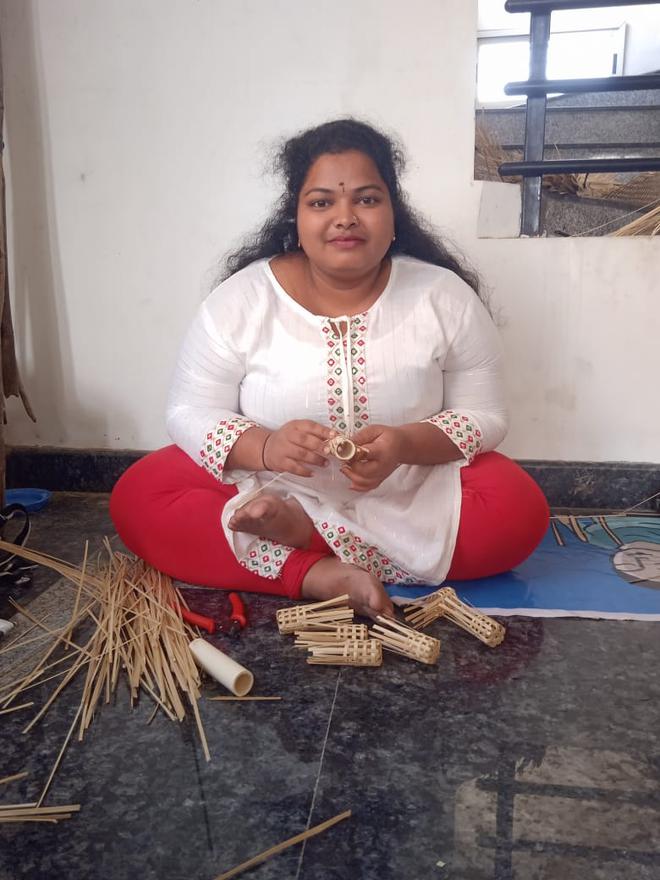
Echoing her, 26-year-old Vedambha, another craftsperson, points out that the advantage of this work is that they can do it even at home and it gives them a steady income. “This work must be continued for a long time for women like us,” she avers.
As the festival season is around the corner, the women hope that eco-conscious customers will help the women light up their lives with their purchases.







